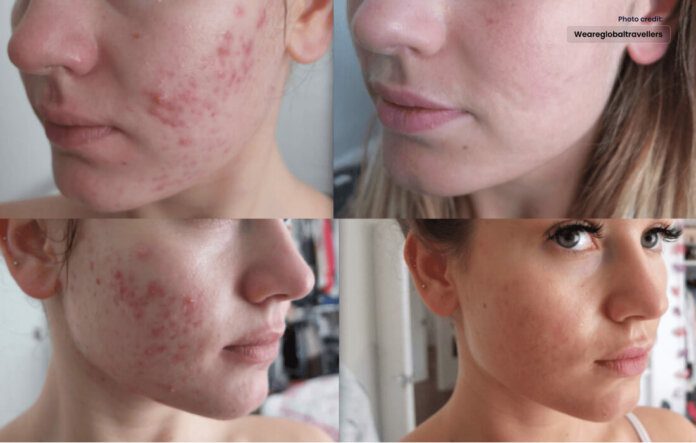Explore Roaccutane: benefits, side effects, and key in acne treatment.
Introduction:
Dealing with acne can be frustrating and impact one’s self-esteem. While there are numerous treatments available, some cases of severe acne require a more potent solution. Roaccutane, also known as isotretinoin, has gained a reputation as a powerful acne treatment. In this blog, we delve into what Roaccutane is, how it works, its benefits, potential side effects, and crucial factors to consider before opting for this treatment.
Understanding Roaccutane:
Roaccutane is a prescription medication primarily used to treat severe and persistent forms of acne that have not responded well to other treatments. It belongs to a class of drugs known as retinoids and is derived from Vitamin A. Roaccutane works by reducing the size and activity of the sebaceous glands, which are responsible for producing excess oil that contributes to acne formation.
Benefits of Roaccutane:
- Highly Effective: Roaccutane is renowned for its ability to deliver substantial results in cases of severe acne that have proven resistant to other treatments.
- Lasting Impact: In many cases, a complete treatment regimen can lead to long-lasting or even permanent improvement in acne.
- Boost to Self-Esteem: Clearing severe acne can have a positive impact on mental well-being, boosting self-confidence and improving overall quality of life.
Potential Side Effects and Considerations:
It is a potent medication that comes with potential side effects and considerations that must be carefully weighed.
- Dryness and Sensitivity: Roaccutane can cause dryness of the skin, lips, and eyes. This can be managed with proper moisturizers and lip balms.
- Elevated Cholesterol and Liver Enzymes: Regular monitoring of cholesterol levels and liver function is essential due to potential impacts on these areas.
Birth Defects:
It can cause severe birth defects if taken during pregnancy. It’s crucial for women of childbearing age to use effective birth control methods during treatment.
- Mood Changes: Some individuals may experience mood changes or depression while taking Roaccutane. Close monitoring and communication with a healthcare provider are essential.
- Joint and Muscle Pain: This medication can sometimes lead to joint and muscle pain, although it’s generally reversible upon discontinuation.
- Sun Sensitivity: Skin becomes more sensitive to sunlight during Roaccutane treatment, so proper sun protection is crucial.
Before Starting Roaccutane:
- Consult a Dermatologist: Only a dermatologist can determine if Roaccutane is the right option for your specific case of acne.
- Informed Decision: Understand the potential benefits, risks, and side effects. Discuss your concerns openly with your doctor.
- Pregnancy Prevention: Women of childbearing age must commit to rigorous birth control methods and regular pregnancy tests while on Roaccutane.
- Regular Monitoring: Prepare for regular check-ups and blood tests to monitor your health and the medication’s impact.
Conclusion: A Clear Path to Consideration
Roaccutane is undoubtedly a potent solution for severe acne, offering a potential path to clear and healthy skin. However, its strength also comes with significant responsibilities and potential side effects. Before embarking on this treatment journey, it’s essential to have open and honest discussions with your dermatologist, weigh the potential benefits against the risks, and be fully prepared for the commitments and responsibilities that come with Roaccutane treatment. With careful consideration and guidance from medical professionals, you can make an informed decision that aligns with your health goals and helps you achieve the clear skin you desire.




